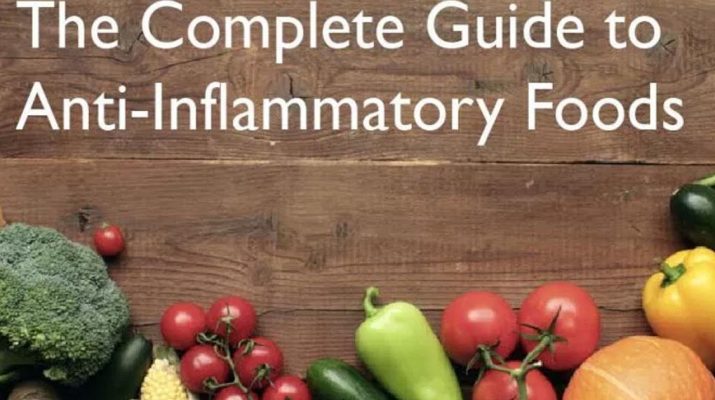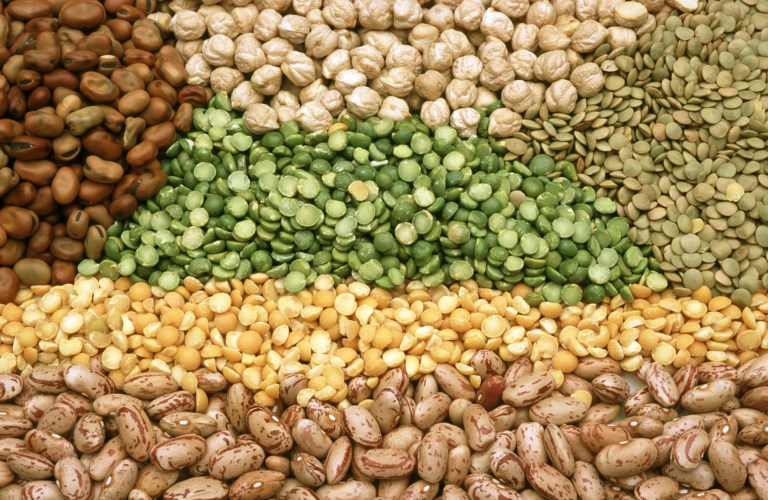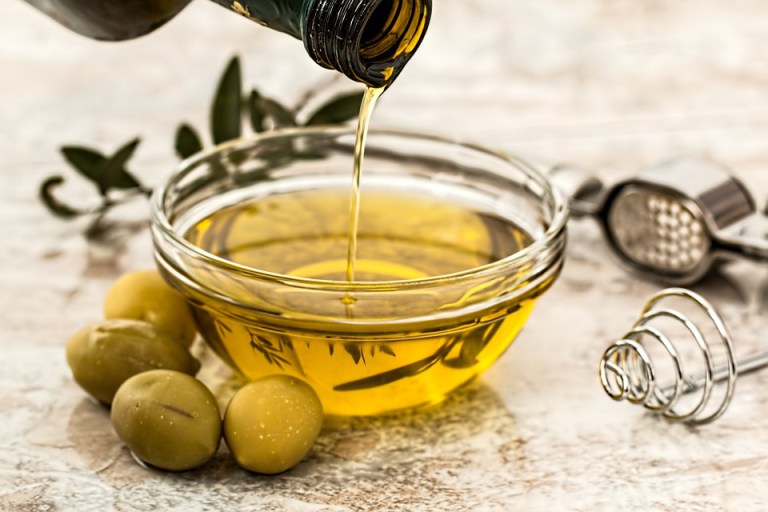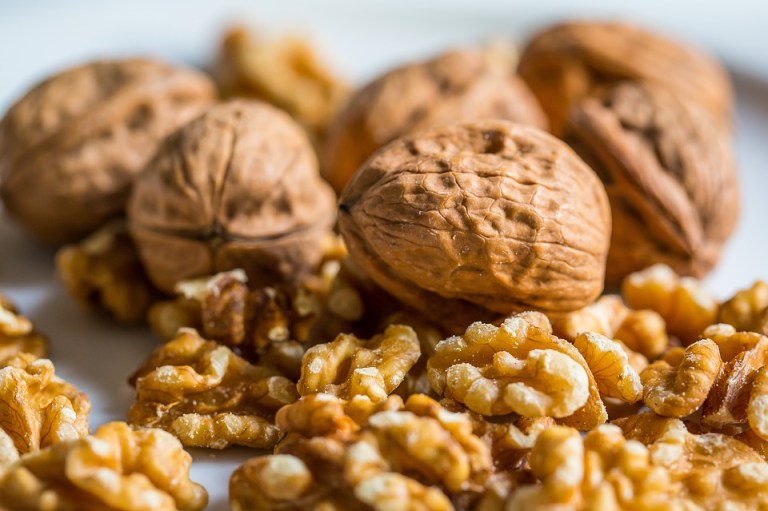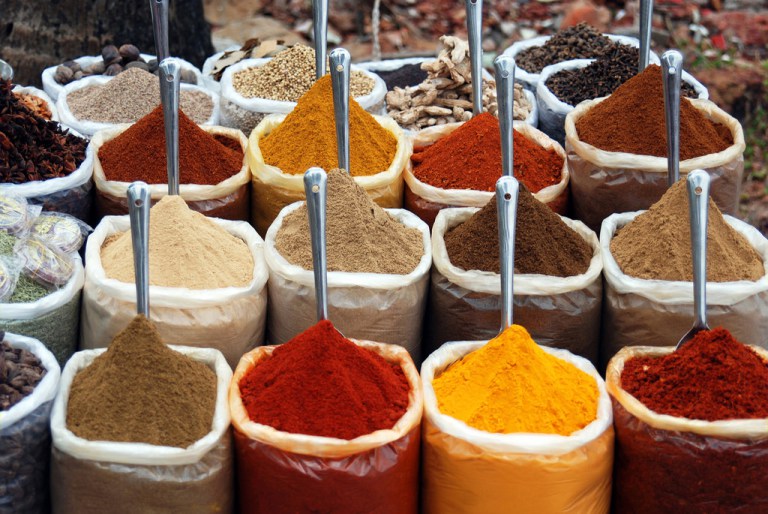The Complete Guide to Anti-Inflammatory Foods
Inflammation is our immune systems way of alerting our body to something wrong. While ‘Acute’ Inflammation – as a result of a cut, scrape and physical injury – is a normal part of the healing process, chronic inflammation however, is a sign of a more serious underlying problem with potentially serious consequences.
While there is much discussion over whether chronic inflammation is a symptom or a cause in many of the health conditions it has been linked to – it should be taken as a warning sign that the immune response is not working as it should.
Understanding Inflammation
Unlike acute inflammation – chronic inflammation usually develops as a result of one or a combination of the following:
- Stress and environmental toxicity such as pollution of our air, land and water.
- Medicines and vaccines, such as antibiotics and proton pump inhibitors acid reflux drugs
- Poor lifestyle choices, e.g. lack of exercise, smoking, high alcohol consumption and poor oral hygiene.
- Diet – typically high in sugar, saturated fat, processed foods and lacking in fiber and diversity
It is usually linked with
- Dysbiosis, an imbalance of bacteria in your gut that causes your immune system to overreact.
- Autoimmune diseases, e.g. lupus, rheumatoid arthritis, asthma and inflammatory bowel disease.
Causes of Chronic Inflammation
Your immune system is programmed to protect your body from attacks by bacteria, viral agents, parasites and other pathogen. Whenever it detects an intruder, it reacts to try and drive it from the body.
Inflammation – the most common form of defense to intruders – is where the tissue surrounding the affected part of the body heats up in an effort to drive out the intruder. However the effect of the inflammation can be as uncomfortable for you as it is for the intruder, causing pain and swelling along with increased heat in the affected region.
Inflammation can also lead to secondary infections and even sepsis, and either of these can become serious threats to your health.
General low-grade food allergies and sensitivities can also trigger the development of intestinal inflammation, especially if you’re eating the wrong diet over an extended period of time.
Symptoms of Chronic Bowel Inflammation
So, how would you know if you’re suffering from gastro-intestinal inflammation, and whether following an anti-inflammatory food diet has the potential to help? Common signs and symptomsinclude:
- Nausea or recurrent upset stomach.
- Reduced appetite and unexpected weight loss.
- Indications of blood in the diarrhea.
- Bloating and pain in the abdomen
- Vomiting
- Indigestions and gastric reflux
- Hiccups or belching
- Loss of appetite with a burning or gnawing sensation in the stomach
- Fever and tiredness
Some or all of these signs could indicate you’re suffering from either an allergic reaction or long-term gut inflammation, and a visit to your doctor will help you identify the reason for the problem.
Importance of a Healthy Gut Microbiome
Taking care of your gut enables you to maintain a healthy microbiome, the ecosystem of micro-organisms that influence much of our health supporting our immune system, our metabolism and helping to fight infection. A healthy gut microbiome helps to support your overall health, in ways such as:
- Protection from infection resulting from colonization by pathogens or “bad” bacteria such as Clostridium difficile, which is currently one of the primary drug-resistant threats to humankind.
- Production of biotin, folate and vitamin K, which aren’t manufactured anywhere else in the system.
- Reduction of insulin resistance and lowered risk of obesity.
- Development of butyrate, which lowers the risk of inflammatory bowel diseases and certain cancers.
Choosing anti-inflammatory foods over those known to cause inflammation can help you develop a healthier gut and a stronger immune system.
Treating Chronic Inflammation Through Diet
As our reliance on medication grows ever more – one of the most effective treatments for so many of our ailments is so often over looked – that is through our diet.
The idea that food is the best medicine is not new – it has its roots over 2,500 years ago when it was put forward by Hippocrates, the Greek physician who is widely regarded as the father of modern medicine.
Hippocrates is also noted for his belief that all diseases originate in the gut – a notion that has gained more prominence in recent years with our improved understanding of the gut microbiome.
While not all diseases originate in the gut as Hippocrates believed (such as genetic diseases for example) the significance of his belief has grown with our improved understanding of many chronic conditions originating in the gut and linked with chronic inflammation – from digestive disorders, metabolic diseases such as obesity and diabetes, to asthma, allergies and auto-immune diseases – and even mental health problems.
Nearly all of these conditions share similarities – an unhealthy make up or disturbance of the gut microbiota – often combined with chronic inflammation.
This guide provides comprehensive information to help you understand the root and causes of inflammation, the treatment options available and how to support long-term treatment through a healthy balanced diet and the inclusion of anti-inflammatory foods – and by avoiding foods known for their inflammatory properties.
Foods that Prevent (and Treat) Inflammation
If the majority of medical conditions stem from poor gut health, prevention of inflammation in the first place is the best way to avoid them. By changing your diet to incorporate foods known for their anti-inflammatory capabilities, you’re empowering your immune system to fight off illness without giving you additional problems in the process.
Anti-Inflammatory Fruits and Berries
While most natural fruit is considered healthy to eat, some are better than others when it comes to controlling inflammation in the gut. These include:
- Dark berries, including cherries, blueberries and blackberries, which all contain powerful bioflavonoids and carotenoids that help manage inflammation. Strawberries are also a good fruit for inflammation, although they contain tiny seeds that are best avoided in anyone with diverticular disease.
- Goji berries are in a class of their own, with up to 12 times the quantity of antioxidants of their blueberry cousins. Listed along with acai berries as one of the superfoods, they have been a part of traditional Chinese medicine for centuries and are considered one of the most nutrient-dense fruits around.
- Pomegranates, apples, oranges and tomatoes are high in natural antioxidants and polyphenols, which actively combat inflammation.
Anti-Inflammatory Vegetables
Leafy green vegetables are the number one go-to for gut health, but some are more equal than others. For example:
- Broccoli rape (a.k.a. rapini) is high on the list. Loaded with bone-building vitamin K, folate, calcium and manganese, this versatile veggie helps to reduce inflammation as well as packing in a number of other benefits for your bone structure, eye and heart health.
- Sweet potatoes also run high in the vitamin stakes. One cup of this delicious root veggie provides 769 percent of the recommended daily amount (RDA) of vitamin A, which fights inflammation and helps protect the health of the immune system.
- Spinach, kale and collard greens are listed by a gut health specialist as being in the top 10 gut healing foods. They contain powerful antioxidants and vitamin C, with one cup of raw kale providing almost 1,000 micrograms of Vitamin K or 10 times the RDA.
Scientists have long believed l-glutamine has excellent anti-inflammatory and analgesic properties, and studies show it is not only beneficial but doesn’t cause any irritation. As a non-essential amino acid, it’s one of very few compounds that occurs naturally and can cross the blood-brain directly. L-glutamine comes from protein-rich foods, fibrous vegetables and sources of fermented foods. Many vegetables are also high in fibre , which is an important factor in managing gut inflammation.
Fibre to Treat Inflammation
A healthy gut needs a daily dose of fibre to help the contents move through efficiently. Fibre can be soluble or insoluble, and both types are good for inflammation even though the body doesn’t digest either.
Historically, ancient humans ingested between 50 and 100 grams of fibre from plants every day, and with more than 36,000 plants containing inulin, they were likely getting most of their daily requirement. Inulin is a complex, soluble fibre that fertilizes health bacteria in the left side of the colon. Soluble fiber converts into gel that slows down the digestive system to reduce cholesterol and blood glucose.
Fermentable, insoluble fiber such as resistant starch remains unchanged and moves waste through the intestines more easily. If the gut doesn’t get enough fibre, it can become constipated, causing imbalance in the speed of digestion and difficulty controlling blood sugar and appetite. Too much fibre, however, causes food to move through the system too fast for nutrient absorption.
According to the Academy of Nutrition and Dietetics (formerly the American Dietetic Association), World Gastroenterology Organisation, and the Crohn’s & Colitis Foundation of America, the consumption of natural dietary fibre like psyllium, glucomannan, inulin, wheat dextrin or flax are the best ways to get the fibre you need. You’ll find these natural fibres in foods such as:
- Legumes, including black beans, lima beans and split peas, all of which are high in resistant starch
- Brussels sprouts, which contain 4.1 grams of fibre per cup.
- Oatmeal, with 4 grams of fibre including resistant starch per cup this makes one of the healthiest breakfasts you can eat.
- Avocado, boasting 6.7 grams of fibre per half a raw unit
- Artichokes, which at 10.3 grams per medium-sized vegetable contain more fibre per serving than any other.
- Root vegetables including yams, potatoes, turnips and winter squashes.
Take note, however, that fibre can be a disadvantage for some people. If you suffer from allergies or certain types of intolerance, including fibrous foods in your diet could cause gas, bloating and discomfort, so check with your healthcare professional before you start munching on the high-fibre options.
Anti-Inflammatory ‘Healthy’ Fats
Healthy fats such as omega-3 and omega-6 fatty acids reduce inflammation and help regulate membrane function. By including these foods in your diet, you’ll give your digestive system the boost it needs to help fight inflammation.
- Oily fish, such as salmon, sardines and anchovies are all high in omega 3 oils.
- Monounsaturated fats found in various oils, including olive, grapeseed, canola, safflower, sunflower, peanut and sesame oil.
- Avocado in any form. Truly one of the superfoods, avocado is rich in vitamins and iron, high in fibre and loaded with oil.
Organic, grass-fed meat also contains healthy fats, and is a good addition to your diet when eaten in moderation.
Anti-Inflammatory Nuts and Seeds
Many types of nuts and seeds are excellent sources of polyunsaturated and monounsaturated fats. Some nuts are rich in magnesium and l-arginine, and almonds, hazelnuts, pecans and peanuts are loaded with vitamin E, which protects us from harmful free radicals and has been shown to reduce inflammation. Other sources of healthy fats, fibre and vitamins include:
- Flaxseeds: Rich in Omega 3’s and Cancer fighting Lignans, a tablespoon of flaxseed contains more than half your recommended daily intake. Flaxseeds are also rich in Flavanoids and Fibre.
- Chia seeds: Another Anti-inflammatory superfood, Chia seeds are also rich in Omega 3 fatty acids with a 3:1 ration of Omega 3’s to Omega 6’s. Chia Seeds are also rich in Fibre, Flavanols and anti-oxidants.
- Walnuts: unlike other nuts, Walnuts are high in omega-3 fatty acids and are also rich in ellagic acid – a natural chemical, which has shown potent anti-inflammatory properties.
- Sesame seeds: Another rich source of lignans, shown to help reduce blood lipid levels, blood pressure and fight inflammation
- Pumpkin seeds and pumpkin seed oil are good sources of monounsaturated fats, thought to help improve heart health and symptoms of urinary disorders. They are also good sources of phytosterols
- Pine nuts. Pine nuts contain a beneficial Omega-6 which helps reduce systemic inflammation with PGE2 and NF-kappaB.
- Brazil nuts Brazil Nuts are rich in Selenium – which defends against free redicals and improves anti-inflammatory responses in the body. Brazil nuts also contain Ellagic acid – with anti-inflammatory properties.
Anti-Inflammatory Herbs and Spices
Last but not least, herbs and spices also have a significant role to play in preventing inflammation from occurring in the gut. They contain a wide variety of antioxidants, minerals and vitamins, and help to optimize nutrient absorption. Many herbs and spices also contain unique medicinal properties. The top 8 most potent have been found to be:
- Cloves containing eugenol that protects against the inflammation by blocking the COX-2 enzyme that causes inflammation. Cloves are extremely rich in antioxidants, including the flavonoids kaempferol and rhamnetin
- Turmeric Long known for its potent medicinal qualities – largely down to the presence of cucurmin – Turmeric has been used for centuries in Ayurvedic and traditional Chinese medicine to treat everything from liver disease to arthritis to immune disorders – all of which are linked with inflammation and gut ill health. Recent scientific and clinical studies have backed up the health benefits – through to be due to the antioxidant, anti-inflammatory properties.
- Ginger Used for centuries around teh world to treat inflammation, muscle and joint pain, as well as sore and inflammed throats. Ginger helps to combat inflammation through the action of gingerols, shogaols, and paradols. Gingerol is particularly useful in reducing the production of the free radical peroxynitrite that causes inflammation and pain. (Excessive levels of peroxynitrite are often the result of gut ill health and dysbiosis)
- Rosemary Rosemary shares many of the antioxidant and anti-inflammatory chemicals found in sage, including enzymes that remove superoxide, a free radical associated with chronic inflammation.
- Oregano A study by Swiss researchers labelled oregano,”ultimate inflammation fighter” thanks to its active ingredient betacaryophyllin (E-BCP)
- Cinnamon Cinnamon is known for its qualities in lowering blood sugar in diabetics also contains a number of chemicals with anti-inflammatory properties that also help reduce cell damage and chronic disease.
- Sage Rich in both Carnosic acid and carnosol – both anti-inflammatory compounds, Sage has been recognised for its protective effects in treating inflammation-based neurological conditions such as Alzheimer’s.
- Thyme Thyme has been found to suppress the COX-2 enzyme in our bodies, a significant cause of inflammation – by as much as 75%
Even in “everyday” dosage amounts given, the first four spices listed were found to be significantly effective at reducing an inflammatory gut response.
Inflammatory Foods to Avoid
Just as there are foods that can help treat and reduce inflammation – there are also foods unfortunatley that aggravate it.
Sadly, many of these are the guilty pleasures we all often crave – but that treating inflammation means that we have to learn to say “no”. The prime culprits for irritating your digestive system are:
- Refined starch: Control inflammation and prevent your body from producing excess amounts of insulin by avoiding refined carbohydrates such as white rice, products made from enriched white flour such as pizza, bagels, white breads, packaged cereals, cakes and cookies.
- Sugar: Refined sugar is an ingredient in many of the same products as starch, and it is exceptionally damaging to the gut microbiome because it increases the permeability of the gut and leads to obesity and insulin resistance.
- Intensively farmed red meat and dairy products: These intensively produced meats and dairy – fed on growth promoting agents and engineered feeds contain arachidonic acid (AA), which is an essential omega-6 fatty acid and a vital component of cell membranes. Too much AA, however, causes chronic, low-grade inflammation that is recognized as a precursor to colon cancer. Organic and grass-fed livestock have lower levels of body fat, which reduces the quantity of saturated trans fats you consume. In addition, lactose is a common allergen, so skip the dairy completely if you’re in the least intolerant.
- Fried foods: Fried foods are often saturated with the vegetable oils they are cooked in, delivering such a high concentration of unhealthy oil to the gut that it can be unable to digest it adequately. In addition, while hormones derived from omega-3 fats are anti-inflammatory, those from omega-6 are not. When omega-6 hormones outstrip the omega-3, inflammation can develop.
- Processed foods and additives: Avoid food items such as processed meats and fast foods, as well as ingredients used to thicken and stabilize. This includes monosodium glutamate(MSG) and emulsifying agents found in ice-cream, salad dressing and other packaged foods.
- Margarine, lard and other animal fats found in sausage, bacon, ham, packaged snacks are all saturated trans fats that trigger inflammation in the gut.
Foods Preparation to Remove Inflammatory Toxins
Making the change to an anti-inflammatory diet can be the start of significantly better health, but it requires motivation and a change of mindset that affects multiple areas of your life. From grocery shopping through to your methods of cooking, you’ll need to adopt new ideas and flavours that might take time to become accustomed to.
- Wash all fresh produce: This is an important step to ensure you remove inflammatory toxins such as pesticides and lectins, as well as bacteria gathered from handling by distribution and sales staff. Even if you’re peeling vegetables, it’s important to rinse them before cooking. This is because your hands come into contact with the skin during peeling and could transfer the toxins to the inner flesh. Wash them just before cutting and cooking, because storing them for more than a few hours after washing could promote bacterial growth and speed up their deterioration.
- Soak pulses and beans: This step not only removes contaminants, but it makes the pulses easier to digest. Many varieties contain sugar-based outer coatings that form intestinal gas when they come into contact with bacteria in the intestine. Soaking them and discarding the water removes these membranes, which could otherwise cause irritation in the digestive system.
- Steam vegetables rather than boiling, frying or baking: This helps to preserve the nutrient value and avoids the loss of water-soluble vitamins like B1, C and folate. If possible, cook the vegetables whole, too, because studies show carrots especially not only retain higher quantities of nutrients but can in fact increase the nutritional value when they are cooked whole. Keep your cooking time, temperature and liquid to a minimum for best nutritional results.
If you adopt these methods of food preparation you’ll not only benefit your gut microbiome, but your overall health is likely to score, too.
The Best Anti-Inflammatory Diets
Nutritionists have developed several popular anti-inflammatory diets over the years. All of them appear to work in some instances, and it’s not uncommon to see mixed results depending on who implements them. Here’s a brief introduction to the most common ones, and links to find out more information:
FODMAP Diet
FODMAP is an acronym, derived from “Fermentable Oligo-, Di-, Mono-saccharides And Polyols.”
Developed by researchers at Australia’s Monash University, a low FODMAP diet limits the intake of sugar-based foods known to irritate the gut. It begins with a 2- to 6-week highly restrictive meal plan, then reintroduces certain foods. While it’s not intended to promote weight loss, this sometimes results when patients are overweight due to poor eating habits.
This diet is particularly helpful for patients with inflammatory bowel diseases, which lead to a number of other health complaints.
Click here to read more about the FODMAP Diet.
The Specific Carbohydrate Diet (SCD)
This diet is based on eating foods that are unprocessed, as well as grain-, starch- and sugar-free. It follows a natural way of eating that represents the way our ancestors lived and is a good way to give your digestive system a fresh start.
Developed by a doctor treating celiac and IBD patients, the SCD diet operates on the principle of removing foods that are difficult to digest to enable the gut flora to stabilize and inflammation levels to reduce. It starts with eating only natural foods that are very easy to digest, gradually adding back other foods depending on the patient’s digestive capabilities.
Click here to read more about this diet.
Dr. Weil’s Anti-Inflammatory Diet and Food Pyramid
Dr. Weil is a well-known personality in the world of healthy nutrition, and in his book on Healthy Aging he discusses how specific food influence the inflammatory process. He also suggests learning about these issues is the best way to contain the problem and reduce your long-term risks of disease.
Click here to view Dr. Weil’s anti-inflammatory food pyramid.
Lastly – Dont Forget Your Lifestyle
Your lifestyle can have just as much bearing on the health of your gut bacteria and chronic inflammation as your diet. Achieving a healthy lifestyle requires more than following an appropriate anti-inflammatory diet. Your health also requires that you get enough sleep, regular exercise ( you should aim for 30 to 60 minutes of exercise at least four times per week) – and lastly but no less important that you avoid excessive stress. In
Adopting both an anti-inflammatory diet and lifestyle is the best way to reduce your body’s immune response and relieve the unwanted symptoms of inflammation. It can help you avoid potential health problems stemming from chronic, low-grade inflammation, and reduce your need for medication. Beat the stress of modern living and enjoy a healthier, more balanced life with fewer illnesses.
Source: http://www.thegoodgut.org/guide-to-anti-inflammatory-foods/
This article is published with permission of thegoodgut.org

